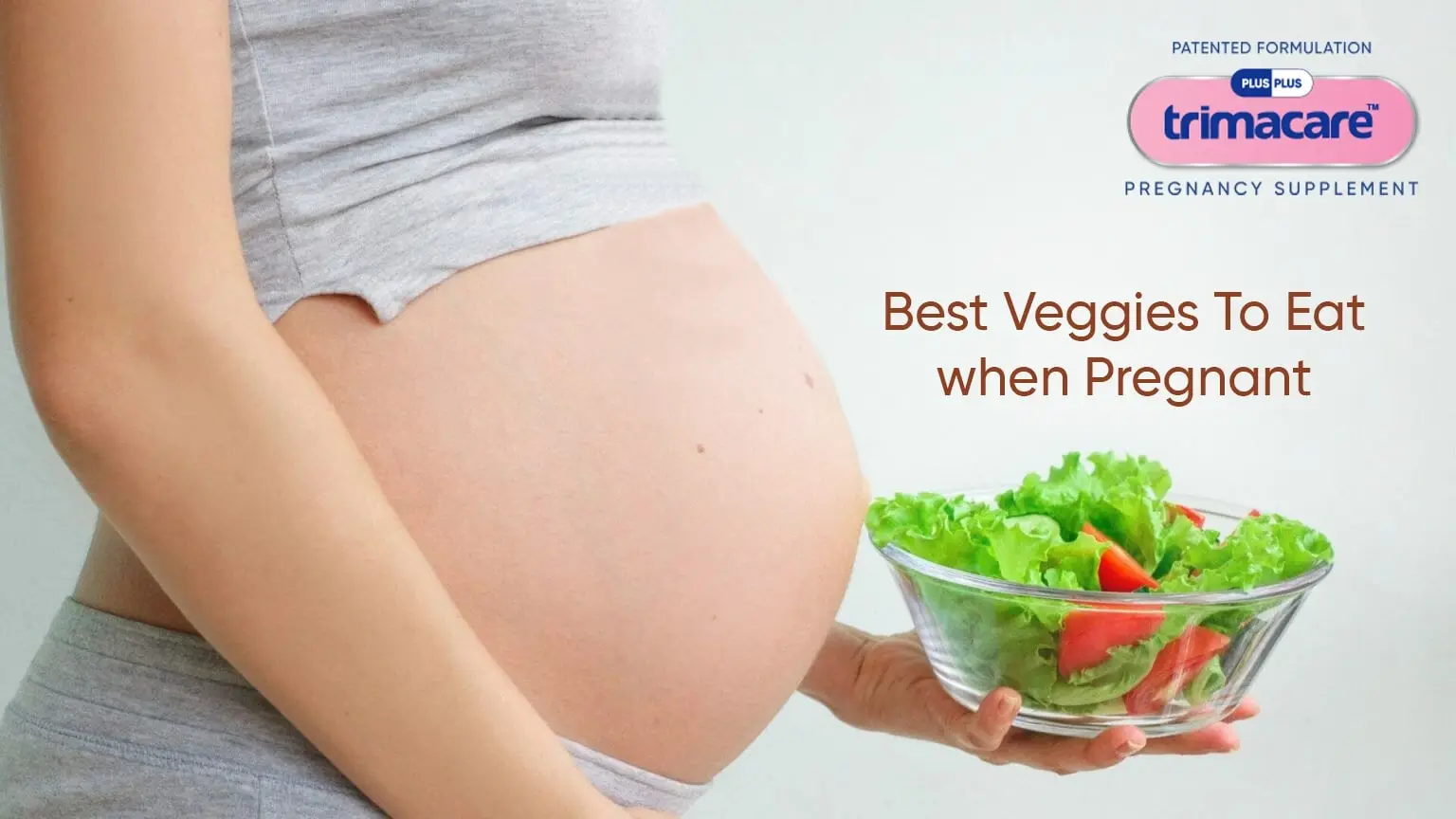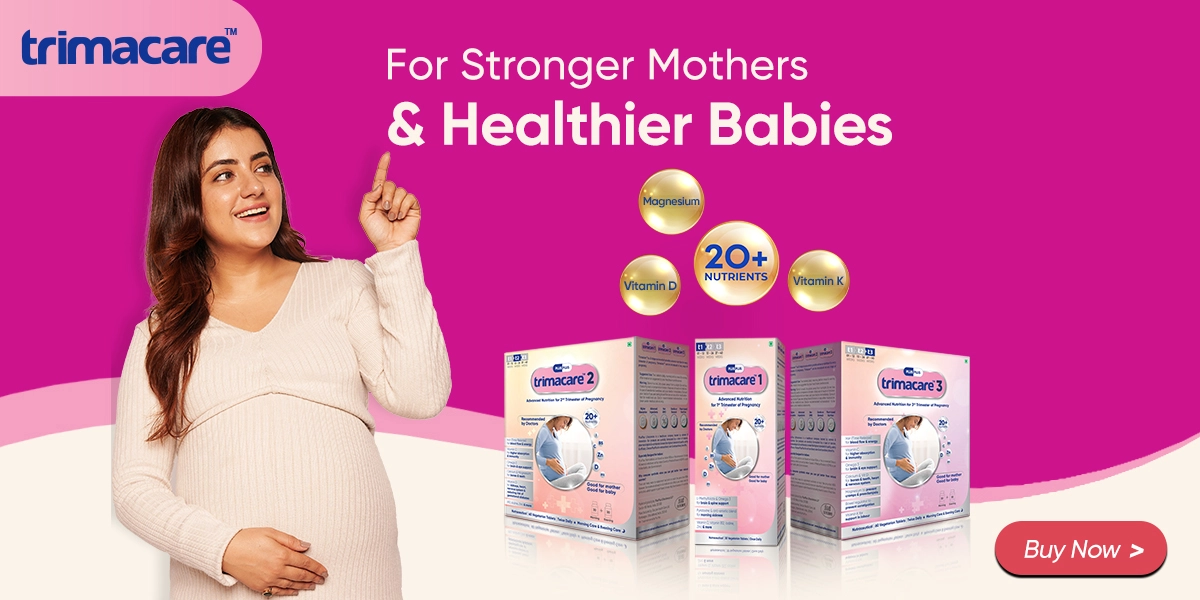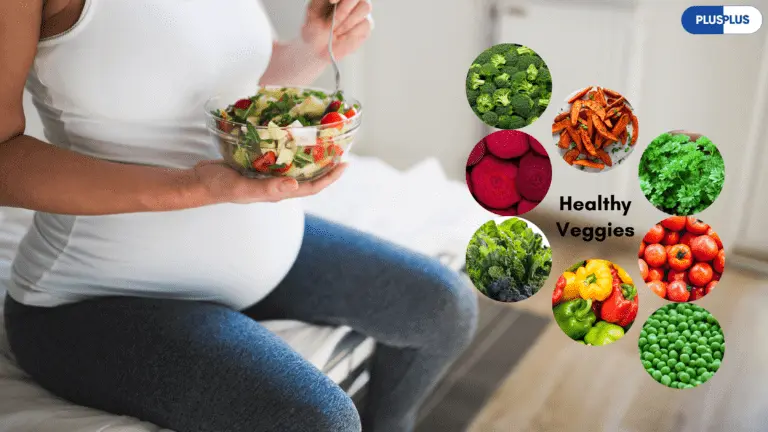Freshly cooked vegetables are packed with essential nutrients that are needed during pregnancy and help in the healthy growth and development of the baby. If you are vegetarian and wondering if you could get all the essential nutrients, don’t worry, a good vegetarian diet and your prenatal vitamins can provide everything you need. While planning what to incorporate into your diet, you need to be a little extra careful with your choice of food as some vegetables are strictly prohibited in pregnancy that’s why you need to know what Vegetables to Eat during Pregnancy. Also, make sure you substantiate your preference for food with each phase of pregnancy as your nutrition needs differ in every trimester.
Top vegetables to eat when pregnant
Here is the list of top vegetables to boost your immune system and provide the nourishment needed in pregnancy:
Sweet Potatoes
Sweet Potatoes contain high ground nutrients as root vegetables are richer in vitamins and minerals than other vegetables. It is fully loaded with vitamin A, C, B6, potassium, and fiber.
- It helps with constipation
- It helps in curing morning sickness
- It strengthens the immune system
- It maintains healthy eyes
- It is easy to digest
Beetroot
Beetroot is a superfood; it aids in the development of the fetus, maintains blood sugar levels, boosts immunity, and is full of iron content to prevent anemia, which is very common in pregnancy.
- Beetroot is full of vitamin C
- It helps to lower the risk of birth defects
- It enhances your immune system
- It promotes healthy liver
- It helps in fetal development
- It prevents rashes and swelling in the joints
- It regulates metabolism
Bell peppers
Bell peppers or widely known as capsicum are commonly used for garnishing. Green Bell Peppers are rich in silicon, which helps to maintain hairs and nails throughout the pregnancy, and Red Bell Peppers prevent the risk of cancer in pregnant women.
Broccoli
Broccoli is rich in vitamin C, K, calcium, folate, fiber, lutein, zeaxanthin, carotenoids. It also assists the body to make vitamin A.
- It improves eyesight
- It protects skin and nails
- It strengthens the immune system
- It combats constipation
- It enhances the bones of the baby
Green peas
Green peas help to prevent neural tube defects which are generally caused by the deficiency of vitamin B9. They are rich in vitamin C, K, A, fiber, folic acid, B complex, and magnesium which makes it a pregnancy superfood.
Dark leafy greens
Dark leafy green vegetables are an amazing diet addition for pregnant women. Incorporate lots of green vegetables into your diet to ensure you get good nourishment as they include lots of fiber, vitamin C, vitamin K, vitamin A, calcium, iron, folate, and potassium.
- They reduce the risk of low birth weight
- They prevent anemia
- They improve eyesight
- They prevent constipation
Parsley
Parsley is rich in protein, riboflavin, vitamin E, and fiber, which helps to keep pregnant women healthy and strong.
Tomatoes
Tomatoes are widely used in Indian cuisine and are rich in vitamin C, K, biotin, and fiber. However, it is advised not to exceed your tomato consumption as it can cause severe birth defects.
- It improves Immunity
- It reduces the risk of hemorrhage
- It improves digestion
- It prevents congenital deformities
- It prevents cancer
- It helps to manage gestational diabetes
Water
Your water intake is not only fulfilled by water but all the fruits, vegetables, and beverages you consume. Regardless, you must maintain sufficient water levels and always keep a water bottle handy. Most pregnant women avert drinking the required amount of water as it is very uncomfortable to pee again and again. However, water is essential to keep yourself hydrated as, during pregnancy, the quantity of blood rises by 45 per cent. Water is essential for channeling all the vital nutrients to the baby, and you might dehydrate yourself by not drinking enough water. The absence of an adequate amount of water can cause dehydration, headache, anxiety, fatigue, mood swings, dementia, and other complications.
A sufficient amount of water intake ensures reduced risk of urinary tract infections, constipation, and swelling, which are very common in pregnancy. Generally, it is suggested to have at least 2 liters (80 ounces) of water per day, but you should confirm with your doctor as it is also recommended to consume water according to the height and weight.
What happens if you don’t take your prenatal?
Good food alone cannot help you to get all the nutrients you need during pregnancy, so you must substantiate your nourishment with prenatal vitamins. Not taking prenatal can cause serious complications and deficiencies in both mother and the child.
Best prenatal vitamins in pregnancy
Trimacare specifically designed for pregnant women, and it verifies with the needs of the specific trimester.
It is a single pill solution, which contains all the nutrients needed in pregnancy. No need to worry about taking multiple pills every night, now.
Trimacare has 3 different versions, each for particular trimesters.
Trimacare 1: It is formulated for the first trimester; it substantiates with the needs of a pregnant woman in the first 3 months. It provides all the essential nutrients to combat morning sickness, fatigue, mood swings, and more, also prepares you for the second phase of pregnancy.
Trimacare 2: It is formulated for the second trimester; it verifies with the needs of a pregnant woman for the next 3 months. It provides all the essential nutrients required for the strong and healthy development of the baby in the second phase of pregnancy. It also prepares you for the third phase of pregnancy.
Trimacare 3: Phase three needs more nutrients as now the pace of growth is high; Trimacare 3 provides all the nourishment required in the last phase of pregnancy.
Benefits of Trimacare
- Trimacare is 100% plant-based with no chemical.
- It helps to combat morning sickness, constipation, nausea, fatigue, without having synthetic pills.
- It is highly absorbent
- You get specific pills for each trimester
- It is specifically designed for pregnant women
Your food intake plays a vital role in the growth and development of the baby, make sure you are eating everything right, and taking your prenatal on time. Include lots of greens in your diet, exercise, meditate and don’t forget to visit your doctor for regular check-up’s.
Frequently Asked Questions:
1. What are some superfoods for pregnant women?
Sweet potatoes, bell peppers, spinach, kale, broccoli, and other superfoods are good for pregnant women.
2. Why are these vegetables considered superfoods for pregnancy?
These vegetables are wealthy in fundamental supplements like folate, iron, calcium, and L-ascorbic acid, which are essential for the wellbeing of both the mother and the creating child during pregnancy.
3. How should these vegetables be prepared and consumed during pregnancy?
These vegetables can be consumed crude in servings of mixed greens, steamed, sautéed, or cooked in soups and stews to hold their healthy benefit. To reduce the likelihood of foodborne illness, it is essential to properly cook and wash them.
4. Can these vegetables be included in a pregnant woman’s diet if she has dietary restrictions?
Indeed, these vegetables can typically be remembered for a pregnant lady’s eating routine regardless of whether she has dietary limitations. Nonetheless, it’s in every case best to talk with a doctor or an enrolled dietitian to guarantee that the particular dietary necessities are being met.
5. How often should pregnant women consume these superfoods?
Pregnant ladies are urged to devour different vegetables, including these superfoods, as a feature of a fair eating regimen. Throughout your pregnancy, try to include them in your meals and snacks on a regular basis to get their nutritional benefits.
A Certified Nutritionist with a rich healthcare background in health journalism, the author has immense experience in curating reader-friendly, engaging, and informative healthcare blogs to empower readers to make informed pregnancy-related decisions.













